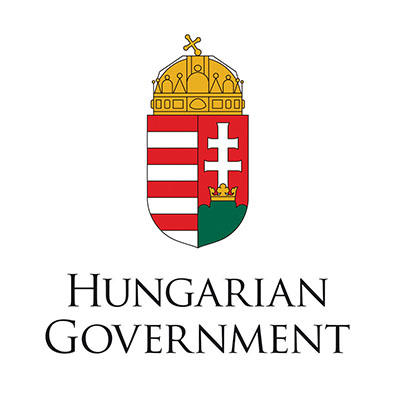eMS code: ROHU 400
The main objective of the project is: improved health-care services at local and regional level of RO-HU through coordinated development of health care equipment and services, an established solid cross-border partnership by setting up a joint interdisciplinary medical expert team and facilitated easier and quicker accessibility of medical services in the eligible area.
Partnership:
- The Emergency County Hospital "Pius Brînzeu" of Timișoara (Romania), Lead Beneficiary
- University of Szeged, Department of Surgery
- University of Szeged, Department of Oral and Maxillofacial Surgery
Total budget: € 2,935,100.00 out of which ERDF € 2,494,835.00
Partner budget (TMSK): € 1.465.100,00 EUR, out of which 85% ERDF non-refundable aid, 13% support provided by the Romanian government, and 2% equity
Partner budget (SZTE): € 1.470.000,00 EUR, out of which 85% ERDF non-refundable aid, 15% support provided by the Hungarian government
Project duration: 42 months (2020. 01. 01. - 2023. 06. 30.)
Objective:
The main objective of the project is: improved health-care services at local and regional level of RO-HU through coordinated development of health care equipment and services, an established solid cross-border partnership by setting up a joint interdisciplinary medical expert team and facilitated easier and quicker accessibility of medical services in the eligible area.
Main activities:
- narrowing the gap between the conditions of the two countries that partly derives from the differences in per capita total spending
- increasing the level of investments in health-care development (human resources, departments, know-how) on both sides of the eligible area
- lowering mortality and morbidity indicators associated with malignant tumours (the 2nd leading cause of death - during 2015, 4,612 new cases were diagnosed in both counties) by installing new diagnostic, screening and curing equipment in order to ensure prevention, early identification and effective treatment of cancer
- organizing conferences
Project main result:
ROHUNOVATION main results clearly link to PA4 specific objective “Improved preventive and curative health-care services across the eligible area” since the proposed intervention contributes to equalizing major service level imbalances, namely: - narrowing the gap between the conditions of the two countries that partly derives from the differences in per capita total spending; - increasing the level of investments in health-care development (human resources, departments, know-how) on both sides of the eligible area; - lowering mortality and morbidity indicators associated with malignant tumors by installing new diagnostic, screening and curing equipment in order to ensure prevention, early identification and effective treatment of cancer. Project main outputs clearly link to Ip9/a output indicator, as follows:
- population having access to measures of prevention, early identification and effective treatment of cancer: 403,000 people including disadvantaged people, representing 66.47% of the target value under this call out of which: 250 disadvantaged people in need for minimally invasive surgical procedures;
- 3,000 people from the eligible cross-border area population, with specific symptomatology of the medical specialities participating in the project, especially disadvantaged people that rarely, if ever, benefit from screening and medical diagnose because of the afferent cost;
- 400,000 people from the eligible cross-border area population benefiting from the information disseminated through the 4 awareness campaigns; Number of health-care departments affected by modernized equipment: 5 departments representing 83.33% of the target value under this call.
Durability of project outputs and results:
All of the project’s tangible results have been designed while keeping in mind the continuity aspect, especially considering that the services proivided through ROHUNOVATION are aligned with both partner’s goals. Outputs durability will be ensured since both partners have long-standing tradition in offering health care services for patients and specialized training programs for their personnel/students, the public organizational setting being one of the most important instruments for fostering sustainability. The following concrete measures will ensure and strengthen the durability of the project`s outputs and results, both partners being responsible for achievieng the proposed outcome:
- Ensuring the functioning of the e-learning platform, telediagnostic infrastructure and web portal created during the implementation period, implying the possibility to further provide the necessary support for online communication between all parties interested in oncology. The online instruments will continue to function, maintaining their atributes on the steps to follow for a full diagnose, recommendations for specific healthcare institutions based on the location of the patient, information and medical history exchange, knowledge transfer/acquire etc. resulting in an expected number of 275,000 persons and 1,000 trainees benefiting from the durability of the project`s outputs.
- Free of charge minimally invasive surgical procedures will continue to be provided for a minimum of 100 patients/ year cross-border, for 5 years after the implementation period.
- Ensuring continuous collaboration in future projects in order to further use the obtained results – The lead applicant is a recent beneficiary of a POCU 4.8 Project which provides that 10 Romanian specialists will benefit from the improvement of technical competences through exchange of best practices in oncology surgery techniques, in EU centers. One of the selected EU centers will be Szeged University.
More information about the Romania-Hungary Program can be found on the website www.interreg-rohu.eu.



